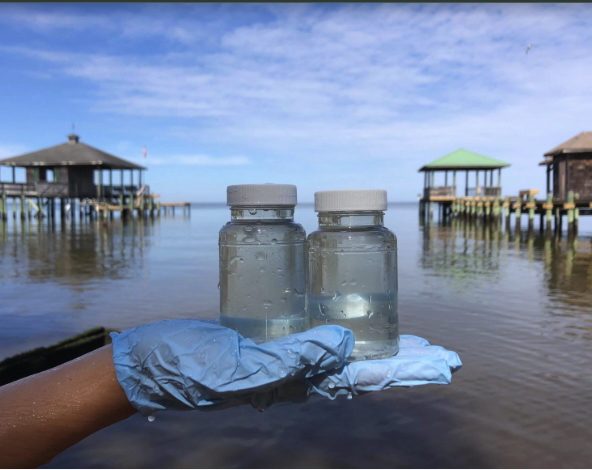
Mobile Baykeeper has been defending and restoring the waters of Coastal Alabama since 1997. In one of the world’s most biologically diverse ecosystems – the Mobile-Tensaw River Delta and Mobile Bay – communities depend upon clean water to drink, play, fish, and swim. This vital ecosystem faces serious threats from over 25 chemical plants, agricultural and rural runoff, and aging infrastructure. The situation is particularly dire in communities like Prichard, where failing stormwater systems cause raw sewage spills in neighborhoods in which 25% of children already face poverty. Through research, education, and targeted programs like its Coal Ash project, Mobile Baykeeper fights environmental hazards that disproportionately impact vulnerable populations. Their work includes rebuilding oyster beds, reducing pollution, improving water quality, and restoring critical seagrass habitats. Based in Mobile, Mobile Baykeeper transforms scientific findings into concrete action, advocating for infrastructure improvements and policy changes to ensure clean water access throughout coastal Alabama.

Sixteen Baldwin and Mobile counties sites are monitored through Mobile Baykeeper’s SWIM (Swim Where It’s Monitored) program. Water samples are collected and tested, with results posted to the regularly updated Swim Guide. As Mobile Baykeeper director William Strickland puts it, “We’ll know we’re successful when no one has to question if the fish are safe to eat, if the water is safe to swim in, if our oyster reefs and seagrass beds return.” Photo: Mobile Baykeeper
Understanding that healthy waterways are vital to a healthy life, Mobile Baykeeper’s 10+ staff and over 4,000 members are dedicated to clean air, clean water, and thriving communities. Their critical programs include SWIM (Swim Where It’s Monitored), which tests 16 sites across Baldwin and Mobile counties for harmful bacteria, sharing results via their Swim Guide. Through their Prichard Wastewater Reform initiative, they’re tackling severe infrastructure challenges that led to 309 sewage spills (45+ million gallons) between 2021-2023, with treatment plants releasing 5.2 million gallons of wastewater daily. They’re also protecting endangered Gulf sturgeon, ancient fish that winter in Mobile Bay, from a major dredging project that threatens habitat and food sources. Working with partners like the Center for Biological Diversity and Univ. of South Alabama, they advocate for better environmental practices, infrastructure improvements, and policies that safeguard both wildlife and community health through research, education, and legal action.

Shrimpers in Alabama have had their livelihood in recent years threatened by the “dumping” of foreign shrimp, accounting for 90 % of the U.S. market. Supported by Mobile Baykeeper and passed in 2024, the Seafood Labeling Bill gives local seafood workers a fighting chance and lets consumers know where their seafood is coming from. Photo: Mobile Baykeeper